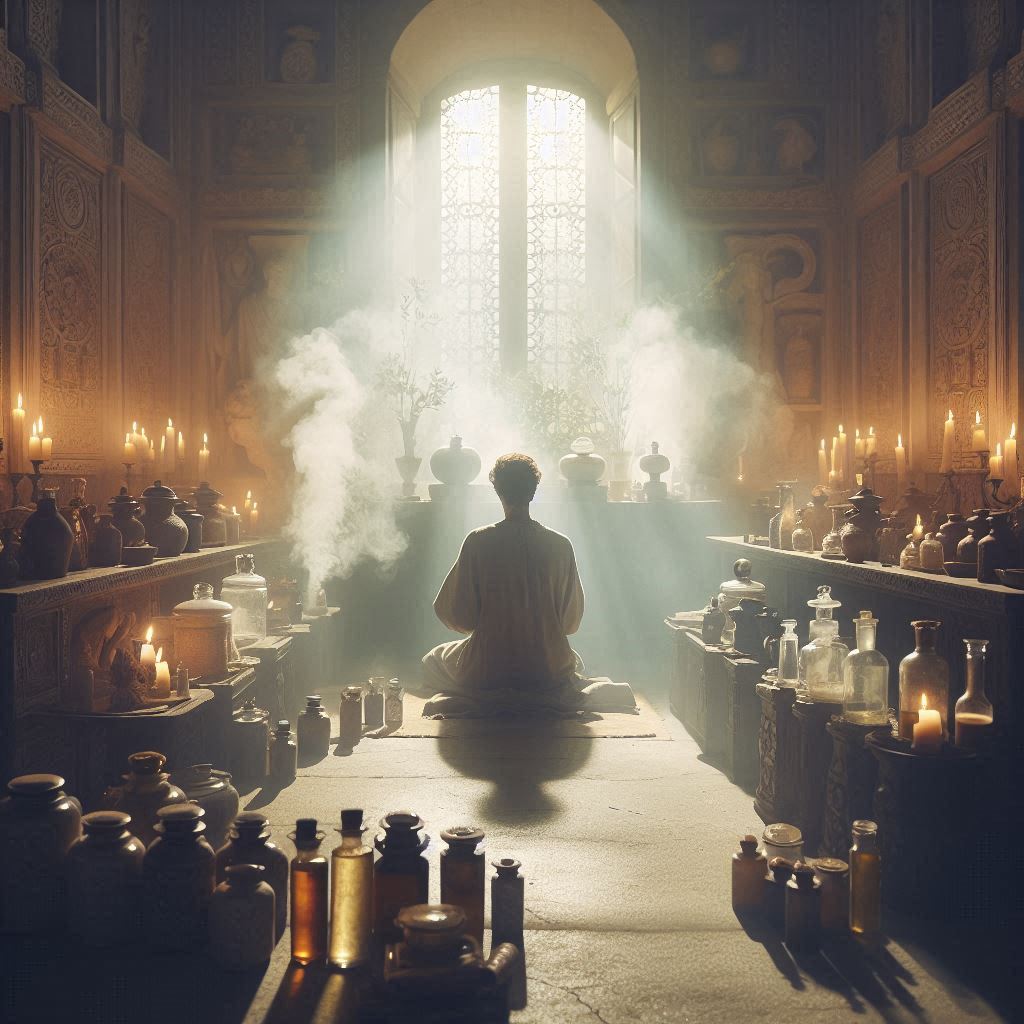
Aromatherapy has a rich and fascinating history that spans thousands of years. From the ancient civilizations of Rome and Greece to modern times, the practice of diffusing essential oils has evolved, yet its core purpose remains the same: to enhance well-being through the power of scent. Discover the historical journey of diffusing and how House of Aja continues this tradition with modern, effective products. Explore our range of essential oils and diffusers today to experience the benefits for yourself.
Ancient Diffusing Practices
The use of aromatics dates back to ancient civilizations, where scents were believed to have powerful effects on the mind, body, and spirit. The Romans and Greeks were pioneers in the art of diffusing essential oils.
Romans: The ancient Romans used essential oils in their bathhouses, adding them to baths and steam rooms to enhance relaxation and promote health. They also used aromatic herbs and resins in their daily lives, often incorporating them into their cooking and rituals.
Greeks: The Greeks adopted and refined the practice of using essential oils from the Egyptians. They used these oils for medicinal purposes, as well as in religious and cultural ceremonies. The famous physician Hippocrates, known as the "Father of Medicine," recommended various essential oils for their healing properties.
Egyptians: Although not mentioned initially, it's worth noting that ancient Egyptians were also significant contributors to the history of diffusing. They used essential oils extensively in their embalming practices and religious rituals. The use of myrrh and frankincense was particularly prominent.
Aromatherapy in Other Ancient Cultures
The use of essential oils was not limited to the Mediterranean world. Other ancient cultures also practiced diffusing and used aromatic substances for various purposes:
Chinese Traditions: In ancient China, essential oils were used in traditional medicine and for enhancing spiritual practices. They were often incorporated into acupuncture and herbal remedies.
Indian Ayurveda: In India, the practice of Ayurveda has long included the use of aromatic substances. Essential oils were used to balance the body's energies and promote health and well-being.
African Traditions: Various African cultures used essential oils in spiritual and healing practices. Aromatic plants were used to ward off evil spirits and promote health.
The Evolution of Diffusing Practices
As time progressed, the methods of diffusing essential oils evolved, reflecting changes in technology and cultural practices. The transition from ancient to modern times saw the following developments:
Middle Ages: During the Middle Ages, essential oils were used primarily for medicinal purposes. The practice of distilling oils became more refined, and the use of essential oils in religious and healing ceremonies continued.
Renaissance: The Renaissance brought renewed interest in the use of essential oils. The development of new distillation techniques allowed for more effective extraction and use of aromatic substances.
19th and 20th Centuries: The modern practice of aromatherapy began to take shape in the late 19th and early 20th centuries. Pioneers such as René-Maurice Gattefossé and Jean Valnet contributed to the scientific study and application of essential oils. The introduction of electric diffusers in the 20th century revolutionized the practice, making it more accessible and convenient.

Today, diffusers play a crucial role in modern aromatherapy. They allow for the easy and efficient dispersion of essential oils into the air, creating a pleasant and therapeutic environment.
Types of Diffusers:
- Ultrasonic Diffusers: Use water and ultrasonic waves to disperse essential oils into the air. They also add moisture to the air, which can be beneficial for respiratory health.
- Nebulizing Diffusers: Use a fine mist of pure essential oils to release their aromatic compounds. These diffusers are highly effective for strong, pure scent.
- Heat Diffusers: Use heat to evaporate essential oils, releasing their aroma into the air. They are typically used for short-term scenting.
- Evaporative Diffusers: Use a fan to blow air through a pad or filter saturated with essential oils, dispersing the aroma into the room.
The Benefits of Modern Aromatherapy
Modern aromatherapy continues to build on the practices of ancient cultures, offering numerous benefits for mental and physical well-being:
- Emotional Balance: Essential oils can help manage emotions and promote a sense of calm. Oils like lavender, bergamot, and chamomile are particularly effective in reducing stress and anxiety.
- Improved Sleep: Diffusing calming essential oils before bedtime can improve sleep quality and promote relaxation.
- Enhanced Focus: Essential oils such as peppermint and rosemary can improve concentration and mental clarity.
Try House of Aja’s Diffuser Blends for a convenient and effective way to experience the benefits of aromatherapy in your home.
Incorporating Ancient Wisdom with Modern Solutions
At House of Aja, we honor the rich history of diffusing essential oils while providing modern solutions for contemporary needs. Our products are crafted to offer the therapeutic benefits of essential oils in a convenient and accessible format.
Experience the legacy of aromatherapy with House of Aja’s premium products. Explore our collection of diffusers and essential oils to bring the ancient practice of diffusing into your modern life and enjoy the benefits of well-being and relaxation.

